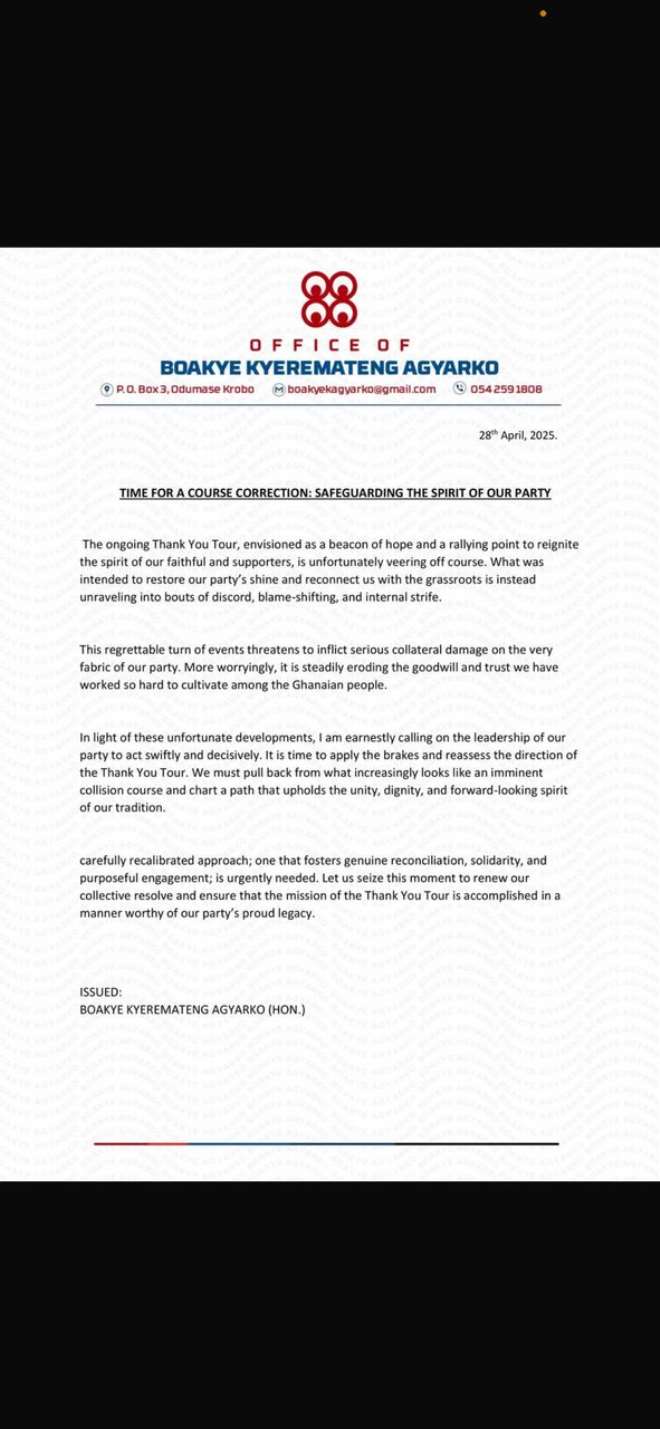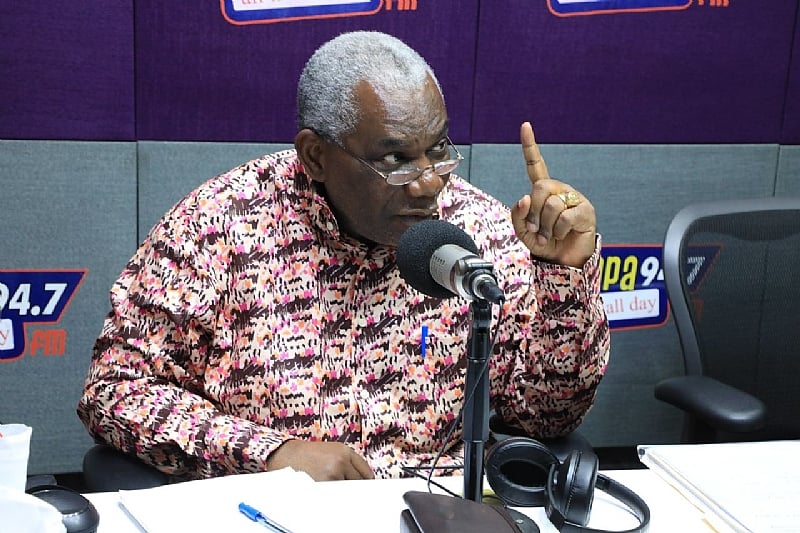A leading member of the opposition New Patriotic Party (NPP), Boakye Kyeremateng Agyarko, has raised concerns over what he describes as a shift in focus in the party’s ongoing post-election thank you tour.
The one-time flagbearer contender noted that the nationwide exercise was envisioned as a beacon of hope to reignite the spirit of party faithful and supporters.
However, in a statement issued on Monday, April 28, Mr Agyarko, who previously served as Energy Minister, lamented that the tour is veering off course.
“What was intended to restore our party’s shine and reconnect us with the grassroots is instead unraveling into bouts of discord, blame-shifting, and internal strife.
“This regrettable turn of events threatens to inflict serious collateral damage on the very fabric of our party. More worryingly, it is steadily eroding the goodwill and trust we have worked so hard to cultivate among the Ghanaian people,” he stated.
He further called on the party’s leadership to act swiftly and decisively to apply the brakes and reassess the direction of the thank you tour.
“We must pull back from what increasingly looks like an imminent collision course and chart a path that upholds the unity, dignity, and forward-looking spirit of our tradition.
“Let us seize this moment to renew our collective resolve and ensure that the mission of the thank you tour is accomplished in a manner worthy of our party’s proud legacy,” he noted.
Mr Agyarko’s concerns follow comments by Palgrave Boakye-Danquah, who criticised former Vice President and 2024 NPP flagbearer, Dr. Mahamudu Bawumia, for shifting blame and being disloyal to former President Akufo-Addo during his speech on the party’s defeat.
During the tour in the Western Region on Saturday, April 26, the former Vice President cited both internal and external factors that contributed to the party’s electoral loss.
He explained that economic hardships, poor internal management, unpopular government decisions, and arrogance of power created widespread dissatisfaction among Ghanaians.
He particularly pointed to the high cost of living, the refusal to reshuffle government officials, the controversial E-Levy, and the Domestic Debt Exchange Programme (DDEP) under the IMF debt restructuring plan.



